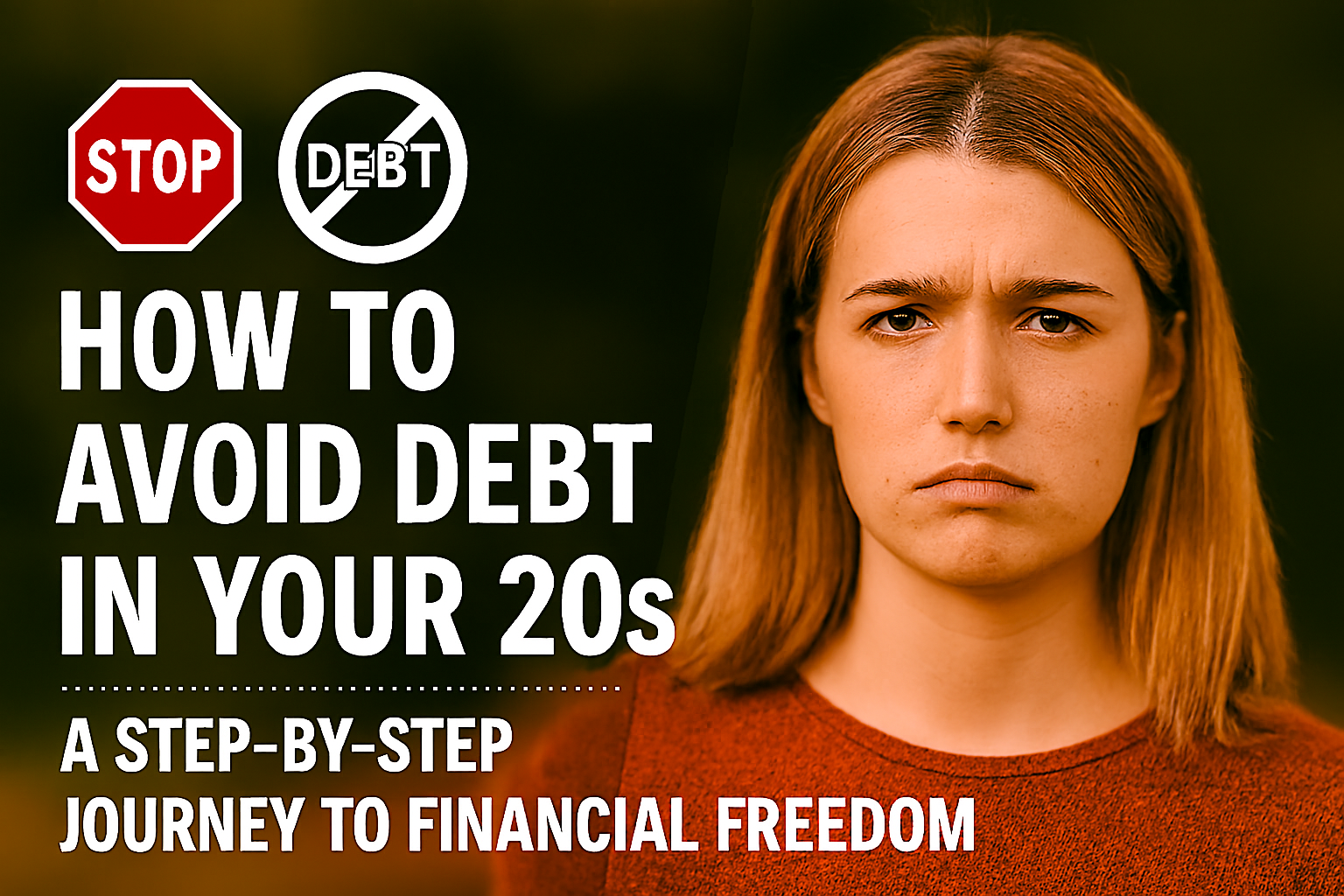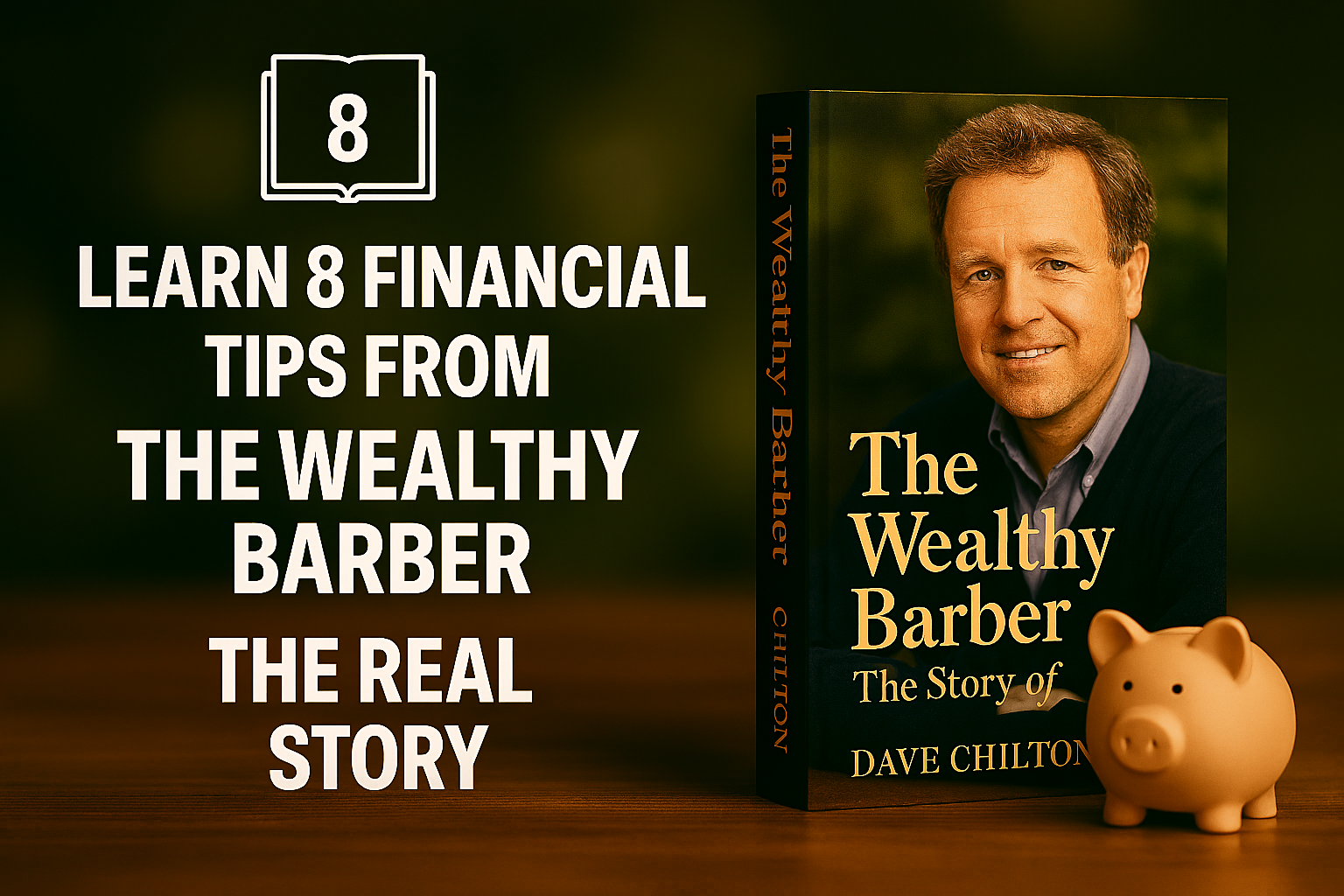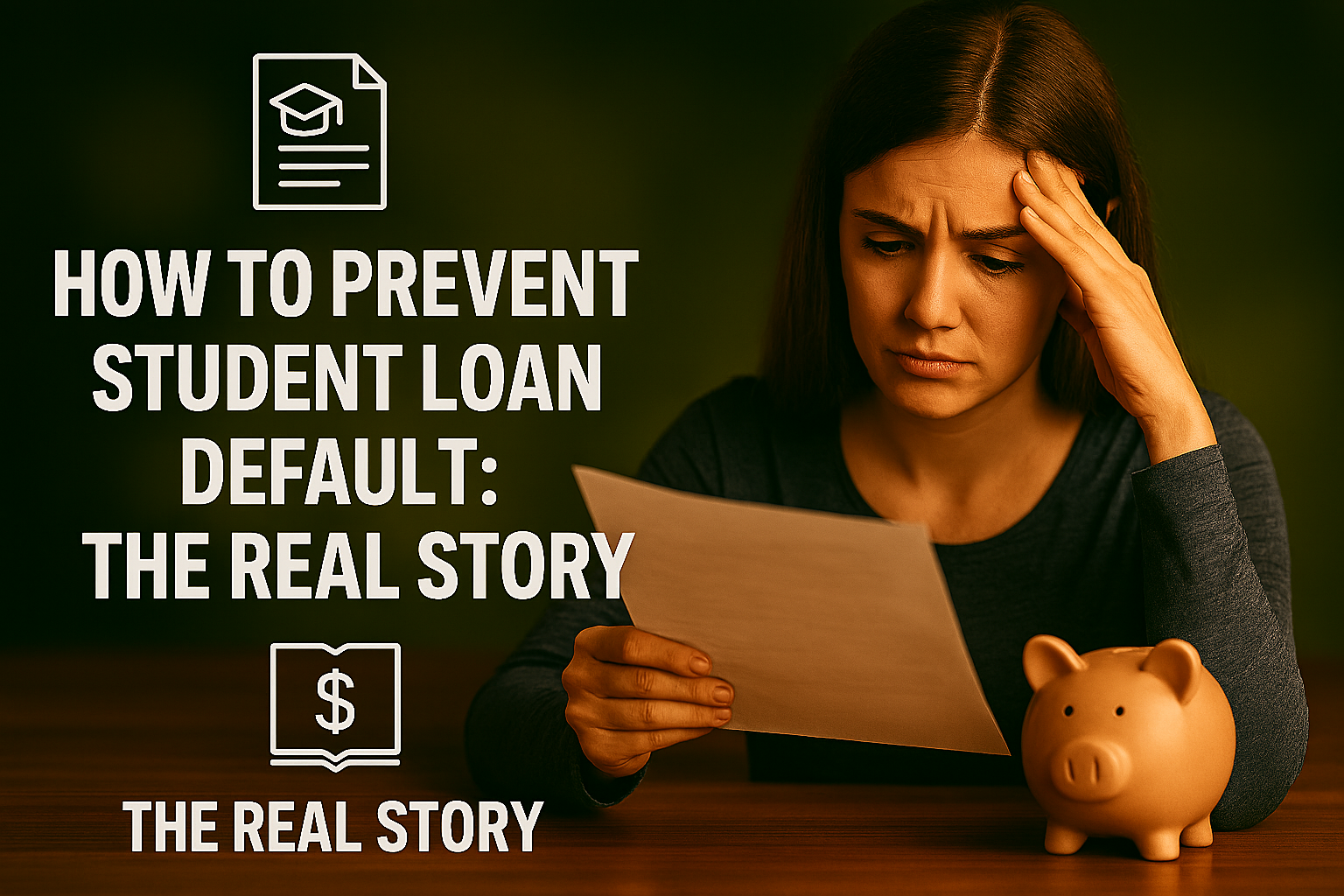
Your twenties are a time of freedom. You fantasize of creating the finest life possible after you finally earn your own money, move out, and use your first credit card. The majority of people, particularly in the United States, are unaware that this decade also determines whether you will accumulate riches or be in debt over the next thirty years. Credit cards, student loans, and auto payments are all examples of sab kuch ek saath aata hai, and if you're not careful, they can catch you in a silent trap. The reality? It takes strategy, not sacrifice, to avoid debt in your twenties. It's about understanding the true behavior of money. Let's examine how to maintain your independence in the face of society's advice to "buy now, worry later."
Your bank statement's debt is more than just a figure. It's a commitment—a future you deciding to put in more hours in exchange for the money you have already spent. Since that future seems so far off in your twenties, it's simple to use your credit card guilt-free. However, interest is charged on every dollar borrowed, and interest is a silent tax on your aspirations. It steals your peace in addition to your money. The majority of young adults in America owe between $30,000 and $40,000 in student loans, on top of $5,000 to $7,000 in credit card debt. However, the belief that "everyone has it, so it's normal" is the largest trap, not the debt itself. The reality? Normal is broke. Freedom is uncommon.
As an illustration, consider Jessica, a Texas native, is 25 years old. After graduating with $45,000 in student loans, she immediately accepted a lucrative marketing position. She purchased furniture on installment plans and leased a new car in a matter of months. She was living payment to paycheck at the age of 27, while earning $70,000 annually. Why? due to her belief that "income = wealth." She had to unlearn that debt is a decision, not a way of life, after three years.
The majority of people in their 20s get into debt not because they are irresponsible but rather because they are unable to distinguish between their needs and wants. The "quick" Amazon order, the hip downtown flat, and the iPhone upgrade—sab kuch urgent lagta hai, par sach mein zarurat nahi hoti. In the United States, marketing tricks you. "Why wait?" The catch is that marketers manipulate you into feeling destitute in order to increase your spending.
The first step in avoiding debt is to develop the practice of pausing for 48 hours before making any non-essential purchases. "Would I still want this next week if I couldn't buy it today?" In most cases, the answer is no.
For instance, Seattle resident Ethan, 24, learned this the hard way. He was spending $400 a month on subscriptions, applications, and coffee. He was astonished to see that his little "wants" had grown into invisible debts after keeping account of every expense for 30 days. He began saving $300 a month once he stopped them, which he utilized to pay off his student loans more quickly.
Debt is a psychological problem in addition to a financial one. Instant satisfaction is highly favored by the human brain. You get a dopamine rush when you buy anything right now. For "future me," paying for it later seems like an issue. Credit cards are risky because they detach emotion from reality. Your brain experiences the agony of spending when you pay with cash. You overspend because it's effortless to swipe a card.
According to MIT studies, using cards instead of cash might increase spending by up to 83%. The trick? Reconnect money and emotion. Imagine your next month's wages shrinking each time you swipe. Just that image can prevent needless purchases.
For instance, Samantha, a recent college graduate in New York, began paying for everyday costs with debit rather than credit. In just six months, she cut her expenses by 40%. She stated, "I stopped defending pointless purchases when I could see my balance decline." Her greatest weapon against debt was awareness.
What is your initial reaction when you receive a raise or a better position? Improve. A better apartment, a better car—better everything. That is the primary cause of lifestyle inflation, which keeps even those with large incomes in poverty. Try the reverse in your twenties: maintain a consistent lifestyle for two years following each rise, rather than adjusting it to your income. Invest or pay off debt with the additional funds. Freedom is compounded by that little wait.
For instance, 26-year-old California engineer Marcus refused to purchase a new car after receiving his first $10,000 salary. Rather, he continued to drive his previous car and paid off his college loan in 18 months with the raise. Although his buddies made fun of him, Marcus was debt-free and investing in index funds by the time he was 28 and they were balancing auto payments.
People have a negative opinion of budgeting because they believe it to be restricting. However, a smart budget is about saying "yes" to what really counts, not "no" to life. The 50/30/20 guideline is ideal when you're in your 20s: 50% necessities (bills, food, and rent) 30% desires (leisure, travel, and enjoyment) 20% debt repayment and savings Use programs like Rocket Money, YNAB (You Need a Budget), or Mint to keep tabs on your expenditures. Financial blind spots vanish once you begin to realize where your money is going.
For instance, when Laura, a 23-year-old Chicago nurse, discovered she had no idea where her $3,000 monthly salary went, she began using YNAB. She found that she was squandering $250 on useless memberships in just three months. She gained control and established an emergency fund thanks to that one realization.
Emergencies merely appear; they don't announce themselves. Anybody can become unstable due to medical expenses, auto repairs, or losing their job. Most people go into debt in their 20s because they lack a safety net. Create a small emergency fund by setting aside at least $1,000, then increase it to three to six months' worth of expenses. Instead of keeping it in your checking account, keep it in a different high-yield savings account. In this manner, it is accessible without being overly alluring to touch.
For instance, Ryan, 27, of Florida, was able to preserve himself during the pandemic when he lost his job because to his $4,000 emergency fund. He didn't swipe his credit card once for three months. "That fund was more than just money," he remarked. Peace prevailed.
Ignorance is bad, not credit cards. When used properly, they raise your credit score; when used improperly, they lower it. The most important rule? Spend no more than 30% of your credit limit, and make sure you pay off the entire amount each month. Steer clear of cash advances and carrying balances. Use one card for necessities (such as food or gas) and one for emergencies only, if you are tempted. Use Experian or Credit Karma to keep an eye on your credit score.
For instance, 25-year-old Megan used her first credit card on everything from takeout to electronics to clothing. The minimum payment seemed sufficient to her. Interest caused her $800 amount to soar to $1,500 in just a year. She changed her approach after learning how credit ratings operate; she now makes full monthly payments, earns rewards, and utilizes her card intelligently.
"Just 4 easy payments!" is how apps like Afterpay, Klarna, and Affirm appear to be harmless. However, they normalize spending more than you have. These platforms are debt disguised as convenience in the current era. They deceive your mind into believing you have more money than you actually have. Every "split payment" adds up while you're in your 20s. In essence, you're unknowingly taking out several little debts. Unless it is absolutely necessary, stay away from using BNPL services. Even then, be sure you can pay it off without delaying your next income.
For instance, David, 22, thought $200 a month sounded straightforward, so he purchased a new MacBook through a BNPL service. Then he received a bill for auto repair and rent, and all of a sudden he was behind on a payment. The outcome? A decline in his credit score and late fines. He took a year to become better.
Because they never learned how to make money work for them, the majority of people end up in debt. Early investment alters that. Even modest investments in index funds, Roth IRAs, or 401(k)s can rise significantly over time in the United States. You will require less credit in the future if you begin early. Compound interest rewards patience, much like magic. By the time you're fifty, a monthly investment of $100 with a 7% return can grow to $120,000. Let time do the heavy lifting, start small, and remain consistent.
For instance, Olivia, 24, began contributing $150 each month to an index fund that tracks the S&P 500. She invested while pals bought expensive sneakers. She has saved $12,000 over the past five years, and she has never once used a credit card for unexpected expenses.
The individuals you spend time with have an impact on your financial behavior. You will regard debt the same way if those around you do. However, spending time with folks who discuss investing, saving, and freedom spreads that perspective. Join YouTube channels, podcasts, or online groups that educate financial literacy in your twenties, such as Graham Stephan, The Financial Diet, or Minority Mindset. Go through books like The Psychology of Money and Rich Dad Poor Dad. Your decisions naturally shift as your surroundings do.
For instance, Jake, 29, used to spend his weekends hanging out with pals who went out to parties. He switched from bar nights to finance workshops after joining a club that promoted financial literacy. He launched a modest side business and paid off $20k in debt in two years. In addition to saving money, he changed his perspective.
Choosing freedom over pressure is the key to avoiding debt in your 20s, not being frugal. Every swipe, loan, and "I'll pay later" moment are small choices that have an impact on your future. You take charge of your time, your tranquility, and your choices when you learn how to manage your finances now. Your twenties are your starting point. You can drag debt like an anchor or fly it. Show interest. Be deliberate. Before you make the same mistakes, learn from others. Because waking up debt-free while yet having the freedom to choose is the true luxury, not the brand, the car, or the trip.

Imagine this While enjoying coffee at a café, your twenty-five-year-old acquaintance remarks ...
 Tajib Ali
Tajib Ali
Imagine waking up in the morning, brewing a cup of coffee, checking your phone, and seeing that your...
 Tajib Ali
Tajib Ali.png)
We frequently hear financial advice and assume that saving money is merely a habit that takes time a...
 Tajib Ali
Tajib Ali.png)
Have you ever wondered how the most important financial choices are made in the world? Michael Lew...
 Tajib Ali
Tajib Ali.png)
One of those financial instruments that can simultaneously offer you freedom and risk is a credit ca...
 Tajib Ali
Tajib Ali.png)
However, the majority believe his tactics are exclusive to Wall Street gurus or billionaires. ...
 Tajib Ali
Tajib Ali.png)
Imagine, brothers and sisters, that you have earned a college degree and are free of student loan de...
 Tajib Ali
Tajib Ali
Ever wonder why some people, despite having ordinary salaries, manage to build long-term financial s...
 Tajib Ali
Tajib Ali
Imagine this: Your graduation cap has just been thrown into the air. Your degree is your...
 Tajib Ali
Tajib Ali
Comments (0)
Leave a Comment